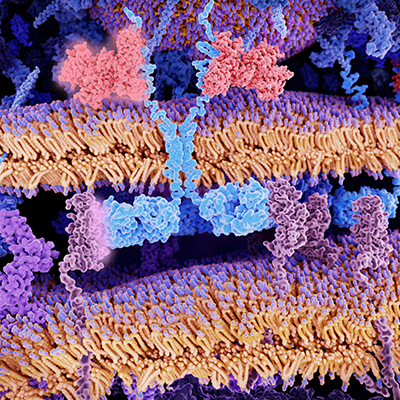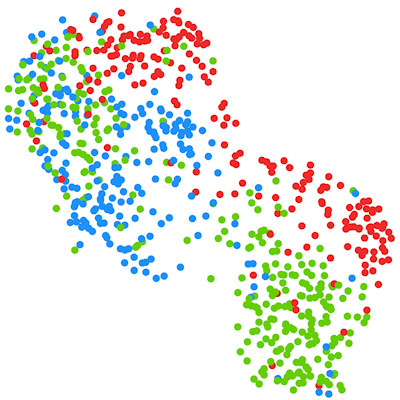January 12, 2022 -- New research has identified a crucial protein that controls the immune system's release of a key factor in fighting infections. The study, published in the journal Nature Communications on January 10, found that the MNDA protein is necessary for white blood cells to produce a type of interferon. This discovery could lead to new drugs to help fight infections or treat autoimmune conditions.
The human body's innate immune system is the first line of defense against potential infections. When a virus is detected, white blood cells release proteins called interferons, which signal neighboring cells to heighten their defenses and interfere with the virus's ability to replicate. However, interferons can be damaging as well. Many autoimmune conditions are linked to the overproduction of interferons, which leads to high levels of inflammation and tissue damage.
This important role in fighting infection and triggering autoimmune disease makes interferons a target of interest for developing new medications. However, immunologists do not fully understand how our cells control their production. Type 1 interferon, known as interferon alpha, is released by white blood cells called monocytes in a complex process involving several proteins and positive feedback loops. Without knowing what all of the steps in this process are, how they interact, and how they are controlled, it is difficult to stimulate or suppress an immune response with new therapeutic interventions.
An exciting discovery
Now, researchers at Trinity College Dublin have found a protein that is an essential step in producing interferon alpha. The team had been studying the pyrin and HIN200 domain-containing (PYHIN) family of proteins, which are involved in detecting pathogens and triggering the innate immune system to respond.
"To our surprise, one such PYHIN protein, called myeloid cell nuclear differentiation antigen (MNDA), turned out to be a big missing piece in the puzzle in understanding how type I interferon production is sustained, which makes this discovery all the more exciting," Andrew Bowie, PhD, professor of innate immunology at Trinity College Dublin, said in a statement.
Unlike other members of the PYHIN family, MNDA does not detect pathogens. Instead, it controls the production of another protein, which in turn leads to the release of interferon alpha.
When the researchers blocked the production of MNDA in innate immune cells, the release of interferon alpha in response to a simulated pathogen threat fell by about two-thirds. Blocking MNDA also had a similar effect on the production of interferon regulatory factor 7 (IRF7), a transcription factor protein that is essential for inducing interferon alpha. Further experiments also found that MNDA binds to DNA by the gene for IRF7 and recruits other proteins that boost the protein's production. This led the team to conclude that MNDA regulates interferon alpha through control over IFR7.
Controlling interferon levels to fight disease
The researchers also found that cells with reduced MNDA levels were more susceptible to viral infection. This is in line with previous clinical research findings that gene variants that cause IRF7 deficiency are linked to life-threatening influenza in children. Other recent research found that patients with life-threatening COVID-19 pneumonia were more likely to have gene variants that affected the function of IRF7 compared to those with mild infections.
The scientists are now studying how MNDA contributes to innate immune responses to COVID-19.
"If we can learn how to manipulate MNDA's activity it could be really beneficial -- on one hand to boost an interferon response during a viral infection, for example upon COVID-19 infection, or on the other hand to suppress interferon production and treat an autoimmune disorder," Bowie said.
Do you have a unique perspective on your research related to immunology? Contact the editor today to learn more.
Copyright © 2022 scienceboard.net









